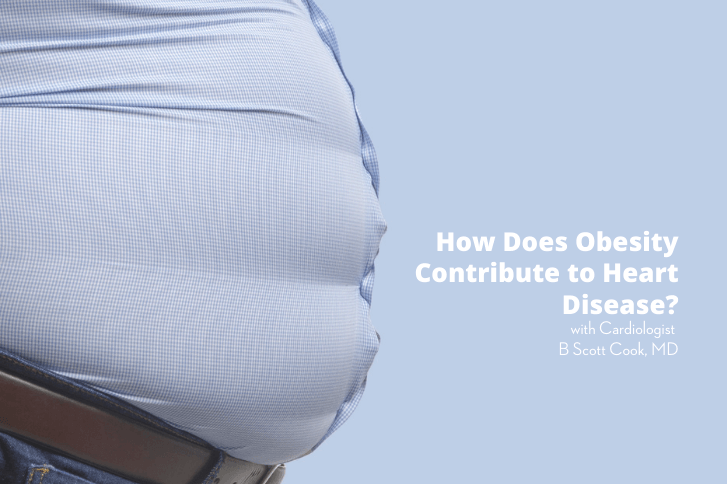Obesity and Heart Disease

How Does Obesity Contribute to Heart Disease?
Obesity is a health problem faced by many Americans and people around the world, and one that causes other medical conditions. In particular, there’s a clear link between obesity and heart disease. How does obesity contribute to heart disease? The obesity and heart disease correlation has been found in many areas, including that it can increase cholesterol levels, clog arteries, elevate blood pressure, and lead to diabetes, which is a factor in developing heart disease.
What Heart Diseases Are Caused by Obesity?
People who are obese often ask, “Is heart disease caused by obesity?”. It can affect many areas of heart health, including:
High Blood Pressure
When a person is obese, it takes more blood flow to supply the body with nutrients and oxygen. As a result, the heart has to beat with more force, which raises blood pressure.
Heart Palpitations
Being obese increases the risk of developing a rapid, irregular heartbeat (arrhythmia) of the upper chambers of the heart. This condition, called atrial fibrillation, can cause blood clots to form, leading to heart failure, stroke, and other medical issues.
Heart Attack Recovery
Remaining obese following a heart attack means a person’s risk of another heart attack or other heart-related condition stays high. Fortunately, treatment following a heart attack often helps a patient achieve and maintain a healthier weight.
Solutions to Obesity and Heart Disease
If you’re obese, you can reduce your risk of heart disease by losing weight and keeping it off. This can be challenging, but there are a number of steps you can take to address obesity and heart disease, including:
Eating a Healthy Diet
This is a step you can take today. By substituting even one healthy food for an unhealthy one in your diet, you’re moving in the right direction. Then you can continue to add fruits, vegetables, low-fat dairy, whole grains, nuts, and other foods while cutting back on or eliminating highly processed foods, sugars, and fried foods.
Exercise
Getting more physical activity is another way that you can start decreasing your risk of heart disease immediately. It’s important to increase your activity level gradually and in consultation with your doctor.
Bariatric Surgery
If you improve your lifestyle but still can’t lose enough weight, your doctor may recommend bariatric surgery, which makes changes to your digestive system, to help you reach your goals.
Learn More About Obesity and Heart Disease from Baptist Health
Learn more about heart care from Baptist Health. Take a Health Risk Assessment (HRA) questionnaire to estimate your personal health risk and identify your risk factors for heart disease.



